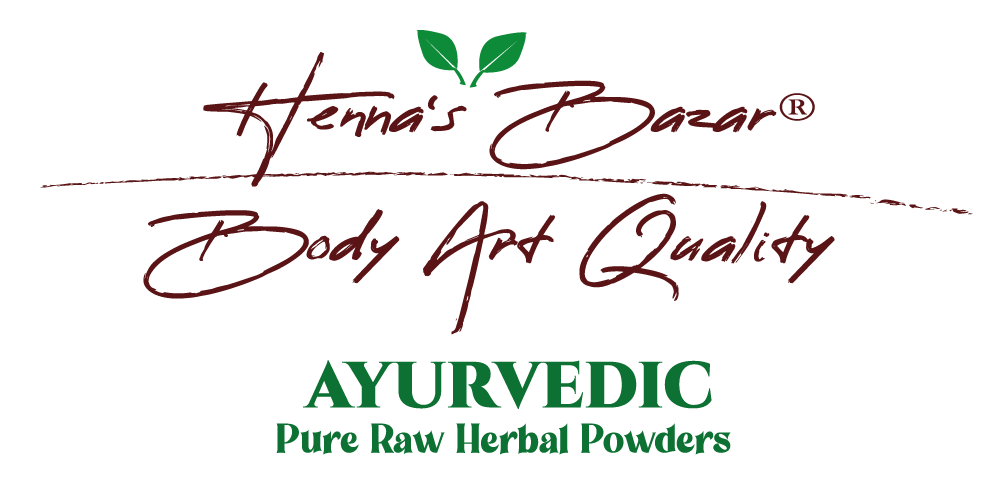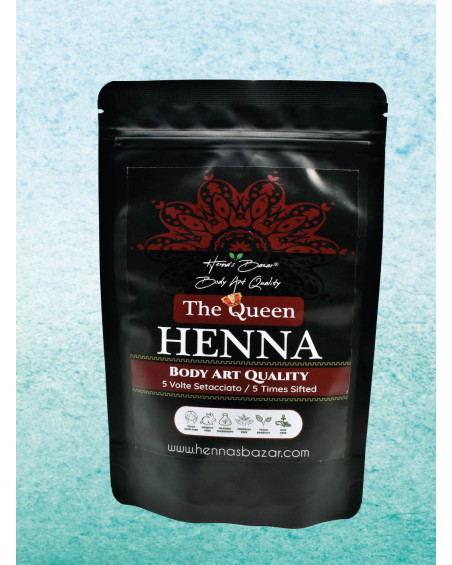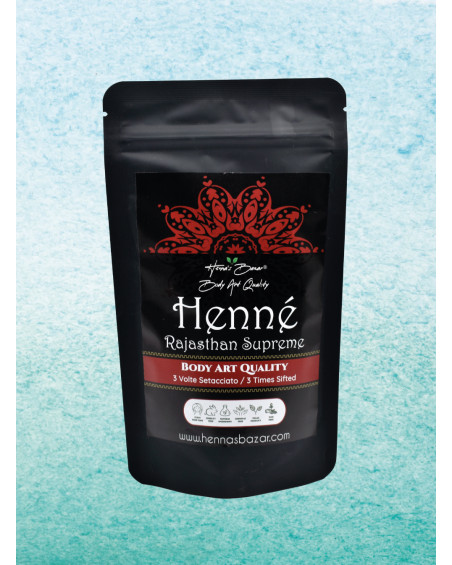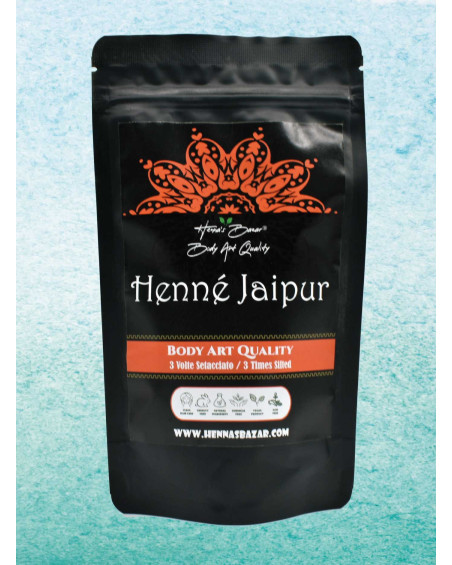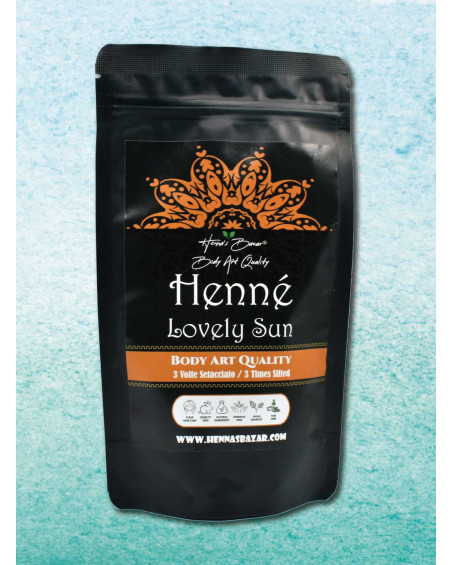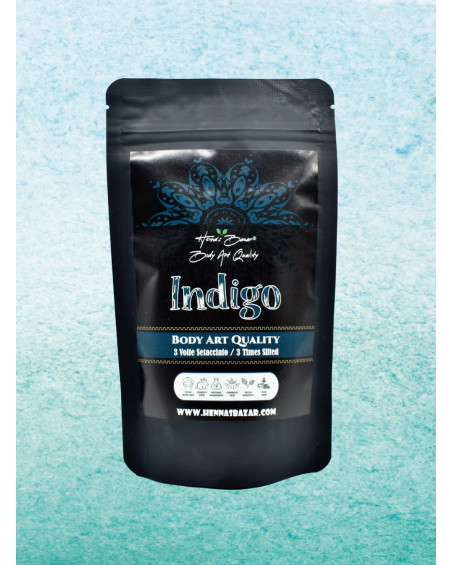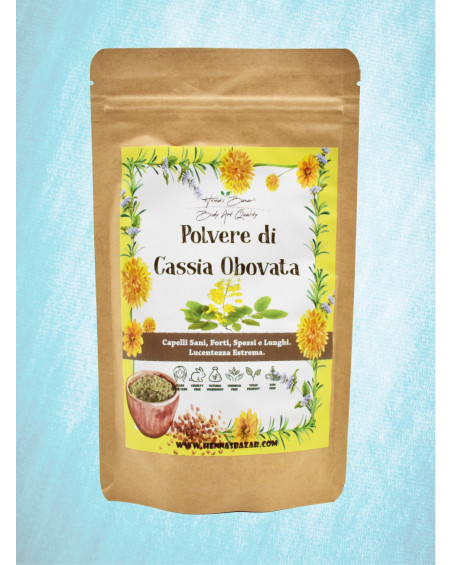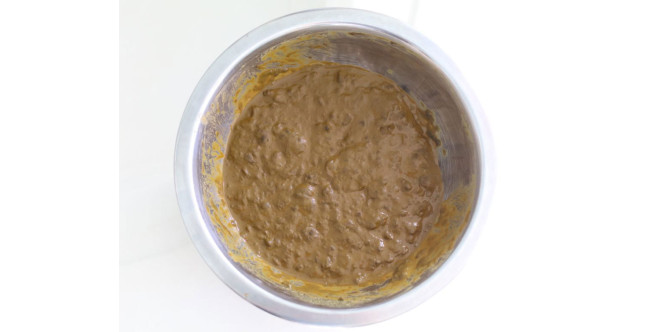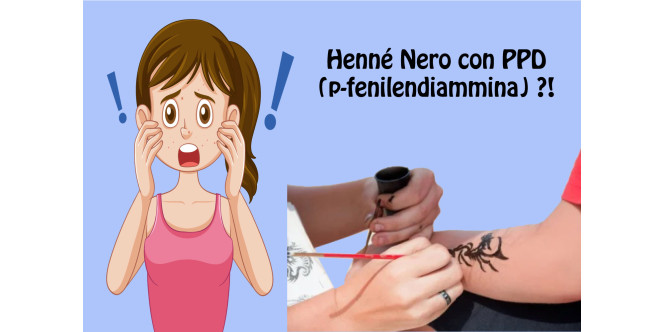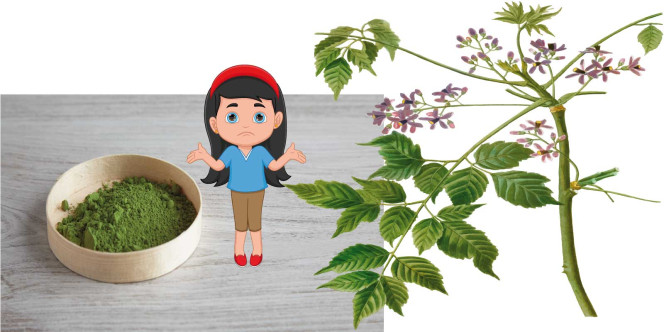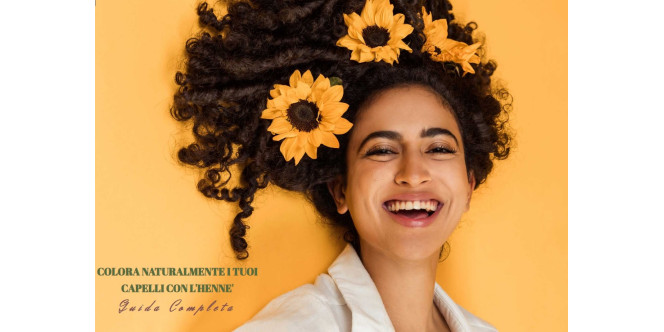
Use of henna for hair: errors and false myths
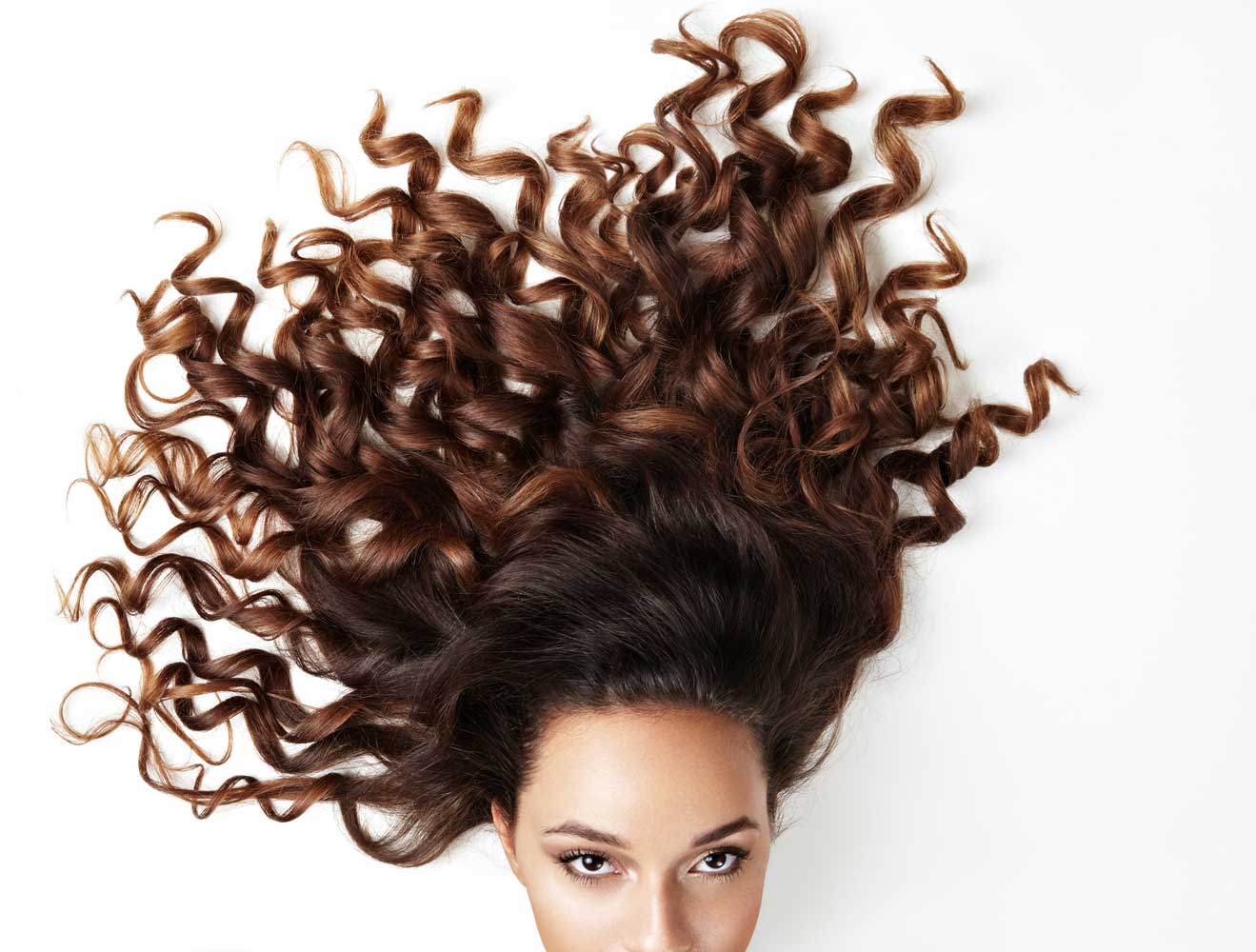
After years of dealing with henna and Ayurvedic herbs for hair (since 2012 ...) we felt the need to clarify and dispel some false myths based on our experience.
- - Henna is a plant, not a chemical or a synthetic dye Henna is a natural plant and grows in very warm climates. As a natural plant makes only one color: orange-red tones. Every plant gives us no more than one color.
- Henné powder is mixed in a henné paste, which can be used to dye hair (permanent until it grows) or to create body art drawings on the skin.
- Henna colors, is that possible? Many henna hair dyes on the market will have a variety of colors available. 100% natural and pure henna only dyes orange-red tones. Please always read the list of ingredients on the boxes you buy by paying attention to whether they are exclusively Latin names of plants or to buy 100% pure henna powder from a reliable supplier such as our store;-)
- Henna won't clear the hair tone. Henna is a hair dye completely natural and free of chemicals. It does not contain chemicals or discolorant ingredients that would lighten the hair and therefore damage them.
- Henna neutral. The obovate Cassia is sometimes called neutral henné, but it is actually another plant that has a low yellow coloring molecule (chrysophanic acid), which can color gray, light and blonde hair. On dark hair, the cassia obovata usually does not show any color. The use of cassia obovata it will give you all the benefits of henna, but it must be done a little more often, since the results are not long term as for henna.
- Henna black. Indigo is sometimes called black henna, but this is another plant that will color brown hair to black tones (it must be used with henna to give these results). The indigo does not have the release of the dye in the same way as henna, so it must be mixed and used immediately or within 15-20 minutes. Make sure your indigo does not contain PPD, which can be very harmful to your hair and skin.
- If I use henna, I will never be able to use chemical dyes/treatments on my hair. As long as you use 100% pure henna powder, then yes, you can use chemical dyes/treatments as you normally do. You won't have to wait months to do your chemical/tinte treatments as the hairdresser would like to tell you. Keep in mind that the hair industry is managed by large companies that push all kinds of chemicals. They are in no way trained or specialized in henna and natural hair care (for most). You should give your hair a break between treatment and treatment. About 1-2 weeks.
- Should I use lemon juice in my recipe? No, you do not have to use lemon juice as the main ingredient and only liquid in your henna hair recipe (based on herbs). Otherwise, many people would have gone away and abandoned henna and natural herbal hair care if they thought they could only use lemon juice. Lemon juice is acidic and can very dry hair. You can add a small splash of lemon juice if you wish. The most recommended liquid to use is hot but not hot demineralized water. You can also use herbal teas or acidifiers of powdered fruit on https://www.hennasbazar.com/gb/.
- Is henna a temporary hair dye? No, henna's not temporary. It's a permanent hair dye. Henna alone dyes only red-orange tones. The only way to remove it is to let it grow or cut dyed hair. That is why it is always advisable to run a test on hair locks before proceeding on the full head.
- Can the herbs dry the hair? Yes, they can annoy. If you have a dry scalp or dry hair, you will need to hydrate. You can add moisturizing oils or a moisturizing herb to your henna recipe.
- Does henna block the hydration?, Henna does not block the hydration of hair, but on certain types of hair can have this effect. I noticed personally that the more henna paste is thin and the less I feel dehydrated hair after a henna treatment.
I recommend adding an oil to your dough or a moisturizer to your mixture.
- Using a bowl or a spoon of metal is safe or not? When using pure henna powder (quality body art) and hair herbs, you can use stainless steel bowls. Traditionally, iron bowls were used, which favoured a greater release of the dye. It is better not to use plastic bowls as they are porous and the herbs could stain them. So if on the packaging of henna or herbs read that you can not mix in metal containers and mix them with steel spoons means that they are not 100% pure and that most likely contain metal salts and chemicals inside them. or
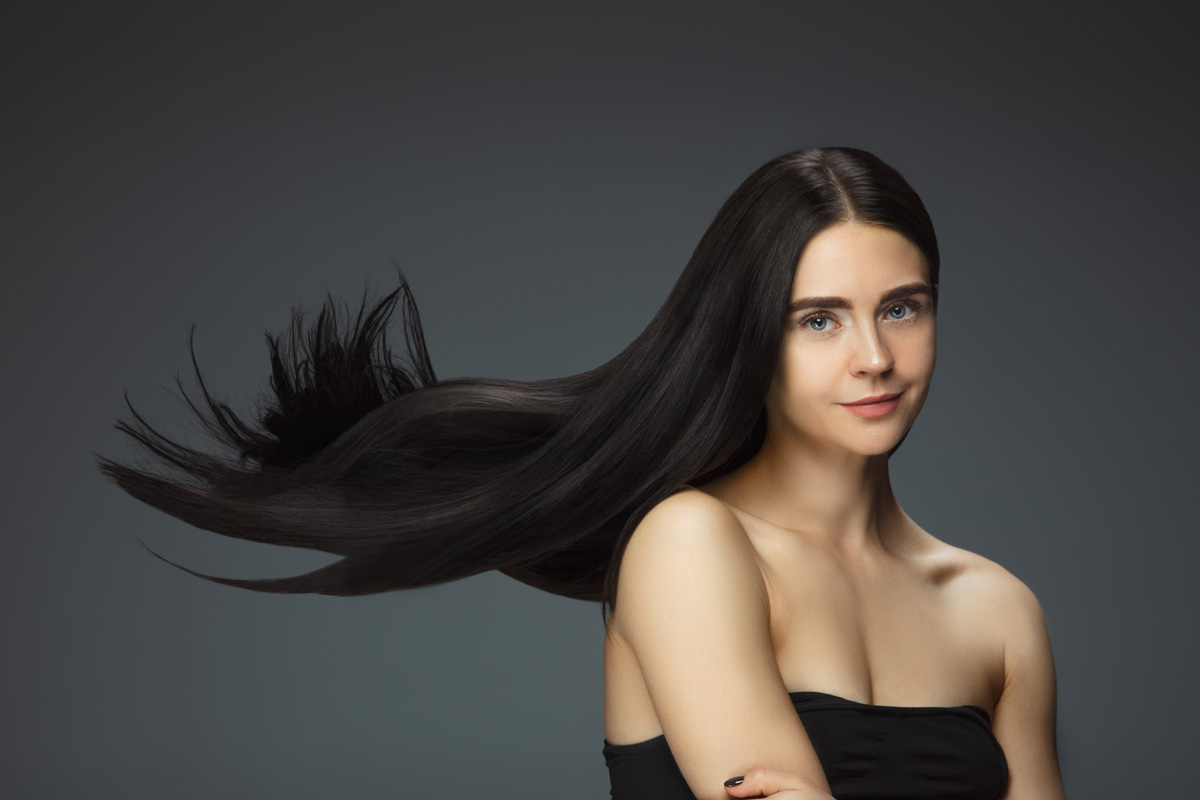
- Can henné loosen my curls? Yes, many people have noticed loosening effects of their curls when using henna and/or cassia obovata. There's a small percentage of people who don't loosen the curls. Add the starch powder to keep the curl but be careful because the amla powder also attenuates the red of henna . You can also use sidr powder for this purpose.
- Body art quality: what does it mean? This term means that henna powder is 100% pure. The body art powder is safe to be used for body art or for the art of body decoration and is sifted very finely. It is absolutely devoid of any chemical.
The best Body Art powders are 3 times sifted or better yet 5 times!
